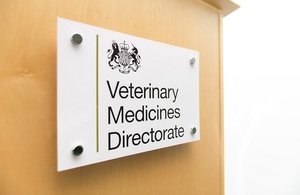The Business Secretary Kwasi Kwarteng has today (1 February 2022) appointed Dr Peter Highnam as Chief Executive of the UK’s new Advanced Research and Invention Agency (ARIA), to lead the formation of the agency and direct its initial funding of high-risk programmes.
ARIA forms a critical part of the UK government’s science and research agenda. Backed by £800 million, it will empower exceptional scientists to focus on high-risk projects at the frontier of discovery and innovation that could transform people’s lives for the better, maintaining the UK’s position on the international stage as a science superpower.
Born in the UK, Dr Peter Highnam brings a wealth of experience making him uniquely capable to step into the role, as he joins ARIA from the USA’s research agency DARPA where he has served as Deputy Director since February 2018. He will take up his post as ARIA’s first CEO on 3 May 2022, for a fixed term of 5 years.
ARIA is based on models that have proved successful in other countries, in particular the influential US Advanced Research Projects Agency (ARPA) model. This was instrumental in creating transformational technologies such as the internet and GPS, changing the way people live and work, while increasing productivity and economic growth.
More recently, ARPA’s successor, DARPA, was a vital pre-pandemic funder of mRNA vaccines and antibody therapies, leading to critical COVID-19 therapies.
Business Secretary Kwasi Kwarteng said:
Dr Peter Highnam’s appointment is a major triumph for the UK. His expert direction will lead the agency’s formation, ensuring the funding of high-risk programmes that will continue to push the boundaries of science and technology.
Under Dr Highnam’s leadership, ARIA will ensure the benefits of research and development will be felt in our society and economy over the course of generations, and that the technologies, discoveries, products, and ideas the agency invests in are supported to create the industries of tomorrow.
The government has committed to increase public investment in R&D to £20 billion in 2024-2025, and ARIA will be an integral and invaluable addition to the UK’s flourishing R&D ecosystem.
Operating with flexibility and speed, avoiding unnecessary bureaucracy, and experimenting with different funding models, ARIA will ensure the UK remains on the front line of experimental research.
Science Minister George Freeman said:
The UK’s scientific community has a proud history of discovery, and the imagination and creativity of our discovery scientists and innovators – from Isaac Newton to Ada Lovelace, Frank Whittle, Alan Turing and Dame Sarah Gilbert’s team developing the COVID-19 vaccine – continue to transform our world.
Dr Peter Highnam’s appointment as ARIA’s first CEO will enable our ground-breaking new agency to push the boundaries of high-risk science in the 21st century. His impressive wealth of experience puts him in a unique position to lead the direction of funding for the most ground-breaking projects in the UK and maintain our status as a leading innovation nation.
UK Research and Innovation Chief Executive Professor Dame Ottoline Leyser said:
Dr Peter Highnam‘s breadth of experience in leading the development and translation of transformational ideas will be a huge asset to ARIA and to the UK’s research and innovation system.
ARIA has a unique role to play in the ecosystem, enhancing the UK’s ability to experiment with novel approaches to finding and supporting people and ideas at the frontiers of discovery and innovation.
On behalf of UKRI I’d like to welcome Dr Highnam to his new role. I am looking forward to working alongside him to unleash the full potential of researchers and innovators across the UK to change people’s lives for the better.
With the appointment Dr Highnam as chief executive, the search for ARIA’s first Chair has also recommenced today.
This is an unprecedented opportunity to help to design and build ARIA from the ground up, as the Chair will support Dr Peter Highnam to deliver ARIA’s goals and ground-breaking ambitions. The Chair will also be a key counsel to the CEO, and ensure the agency’s effective governance.
All applications will be reviewed by an Advisory Assessment Panel comprised of the Government’s Chief Scientific Adviser, Sir Patrick Vallance; BEIS’ Director General for Science, Innovation and Growth, Jo Shanmugalingam; CEO and co-founder of DeepMind, Demis Hassabis CBE, former Chairman of the Vaccine Taskforce, and Managing Partner at SV Health Investors, Kate Bingham DBE.
This appointment will be a fair and open process, overseen by the Executive Search agency Saxton Bampflyde. More information about the role of ARIA Chair is available on the Saxton Bampflyde site.
Dr Peter Highnam joined DARPA in February 2018 as Deputy Director and served as acting Director on 2 occasions.
He has previously held positions as the Director of Research at National Geospatial-Intelligence Agency, and as Director of the Intelligence Advanced Research Projects Activity.
He worked at the US Department for Health and Human Services from 2003 to 2009, serving as senior advisor in the National Institute of Health.
Born in the UK, he obtained his undergraduate degree from the University of Manchester, his master’s degree at the University of Bristol and has a PhD in Computer Science from Carnegie Mellon University.

